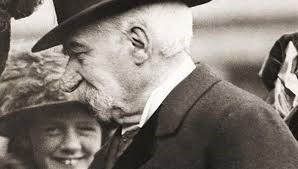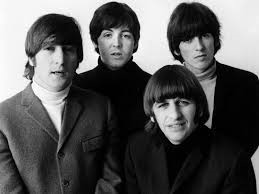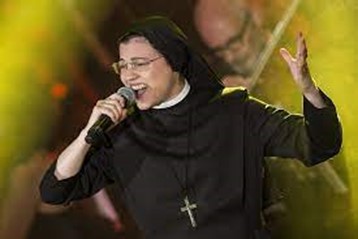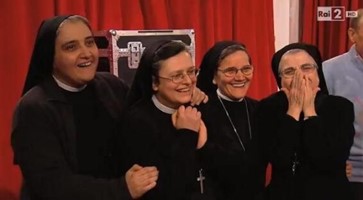The author Malcolm Gladwell defines an outlier as “something that is situated away from or classed differently from a main or related body.” In his book of essays he focuses on the secrets of success for outliers. Based on his vignettes, Gladwell implicitly defines success as wealth and/or celebrity. The underlying message of Gladwell’s book is that no matter how smart, talented or athletically gifted you might be, your chances of breakout success will ultimately depend on an ineffable mix of family support, mentorship, cultural and societal environment factors and outright luck. Gladwell profiles hockey players, techno wizards such as Bill Gates, lawyers, businessmen and the Beatles.
As a starting point, Gladwell posits that 10,000 hours of practice are required to hone expertise to an outlier level. The Beatles reached this cutoff through hours of performing in the seedy strip clubs of Hamburg, Germany at the start of their career. When they returned to England, they had gained the confidence and experience to burst onto the international stage. Gladwell refers to Hamburg as the “crucible” of the Beatles’ success.
Over the last decade singing competitions have become a staple of network TV. I decided to investigate whether Gladwell’s principles would apply in this age of social media and instant stardom. The singing competition show The Voice became my test crucible. The format consists of an initial round of blind auditions, in which four judges sit with their backs to the singers and turn their chairs if they like what they hear. If multiple judges turn their chairs, the singers select one as their coach. As the show progresses, singers are eliminated based on an audience vote until a winner is crowned midst floods of fluttering confetti.
Could instant stardom circumvent the 10,000 hour rule and would this instant stardom prove durable, propelling the winners to a halftime Super Bowl performance, to struts along a Red Carpet, a People Magazine cover, a Wikipedia profile, celebrity endorsements of perfume, shoes, a couch or absorbent underwear?
- What Gladwell missed: For performing artists, outlier looks matter, but either end of the spectrum works fine.
In Gladwell’s world, looks don’t matter. Money talks. We don’t care what Bill Gates looks like; lawyers work behind the scenes. J. P. Morgan, an outlier in the the industrial revolution was disfigured by an enormous, bulbous nose due to the skin disease rhinophyma. Nobody cared.
Singing competitions add the variable of the visual to the analysis of success. Carrie Underwood, the season 5 winner of the related show American Idol, is perhaps the most celebrated winner. She dabbled in music during high school, but there was no Hamburgian-like testing ground, no singing in front of hostile or raucous crowds, no 10,000 hours. She walked onto the stage and let it rip
How much of Carrie Underwood’s success is related to va-va-va-voom good looks, skimpy outfits and amiable stage presence. (She bizarrely admitted that she had a third nipple on her stomach and could cluck like a chicken.) Would the Beatles have enjoyed the same level of swooning success if (let’s face it) the butt ugly Ringo Starr was the lead singer and cute-as-a-button Paul McCartney was the drummer relegated to the back row? How much did their cheeky press conferences contribute to their success?
An unlikely physical appearance can also work to a performer’s advantage. The Italian version of the voice featured a fully-habited nun (Christina Scuccia) singing a spritely version of Alicia Keys’ song, No One, with a phalanx of sister nuns bebopping along backstage.
The audience, who saw the singer before the judges, went wild. There was a collective jaw drop as judges turned their chairs to see a dancing nun wearing sensible shoes, her silver cross bouncing along her chest. Yes, she had a fine voice, but so did a lot of plain looking contestants. The nun became a fan favorite mostly because she was a nun, going on to sing such against-type stunt songs as “Girls Just Want to Have Fun,” and “Like a Virgin.” She won.
- What Gladwell got right: Success requires ancillary skills beyond the core singing talent – among them fierce ambition, stage presence, networking skills and the luck of mentorship.
Tracking the careers of the winners suggests that Gladwell is correct. The instant fame of The Voice is not durable, with few going on to any more than modest success. Sister Cristina ultimately left her monastery to pursue her singling career. As of 2022, she was reported to be working as a waitress in Spain.
The Voice has been criticized for their failure to produce a breakout star. Carson Daly, the host of The Voice, offers a more modest definition of success than Gladwell – success is anyone who can make a living doing what they love to do.
- Another thing that Gladwell got right: The biases in The Voice voting process skew the critical ingredient of timing.
Gladwell cites optimal timing as a key factor for success, as illustrated by junior hockey leagues in Canada. Young players are slotted into different leagues based on a January 1st age cut-off, giving those born in early January an up to 11-month head start in skills and development. It is startling to see that the majority of players in each of the Canadian elite junior leagues have birthdays in January and February. This age bias trickles into the pro ranks.
I see the same factors at play in The Voice, not in the age of the contestant, but in the biased timing of voting. During the live performances, viewers are invited to vote at any time during the show. Therefore, those who perform first enjoy a longer voting window.
The highly touted “Instant Save” presents a more troubling bias. The two lowest vote getters from the previous show each perform one last song. The vote between the two of them is only open for five minutes. As the credits runs, the host Carson Daly, announces in his most solemn voice, “And America saves…” America, my ass. This scheme effectively disenfranchises those in Mountain and Pacific time zones since the show is tape-delayed by two hours. The voting window closes before they can watch the show.
The producers blithely note that viewers can still vote, but they are voting blind – an interesting voting strategy that, sadly, may be common in this country. It is not surprising that country western singers, well represented in the Eastern time zone, are the most frequent winners of the Voice. Gladwell notes that a receptive environment is critical for outlier success. The Voice’s voting practice skews this environment.
Though not directly related to Gladwell’s thesis, there are other troubling features. The Voice website invites “America” to vote more than once, up to ten times per email address. The “one person/one vote” bedrock of our democracy, beaming brightly to the rest of the world, does not apply to The Voice. Another quibble is a subtle form of bribery. If you vote using The Voice official app, you will get an extra treat from the Peacock Streaming service.
- Gladwell is right again: Where would we be without friends and family? (But this is a no-brainer.)
Another Gladwellian theme is the grassroots support of family, friends and local mentors. During the blind auditions, the camera pans offstage to a collection of family and friends who breathlessly anticipate a chair turn, followed by screaming, clapping, hugging and kissing the affable host Carson Daly. In their brief bios and interviews, the contestants tearfully describe their roots in music and their families’ support.
- Gladwell continues to be right, this time with a final flourish.
Gladwell provides unexpected insights into the secrets of success but the evolution from obscurity to the bright lights of celebrity and fortune is the most compelling part of the book. I am more interested in the teenaged Bill Gates sneaking off at night to access the University of Washington computers. I wish I had seen the Beatles live in the 1960s, but even better, I wish that I had seen them in Hamburg as they were accumulating their hours. I hope (but no guarantee) that I would have appreciated their blossoming greatness.
Raw talent is the most charming aspect of The Voice. Contestants stumble onto the stage looking like they have wandered in off the street, their contestant numbers slapped haphazardly on their chests. The microphone shakes, their voice quavers as they confess that this is their first live performance.
As the show progresses the performances become polished and over rehearsed. Contestants get makeovers, style advisors weigh in. For her blind audition, a frumpy but spirited Susan Boyle clumped onto the stage wearing an ill-fitting shift dress with no discernible waist. Her frizzy hair had an every-which-way part. She fumbled when asked the simple question of the name of her village. She seemed simple to the point of cognitive pathology. The audience and judges began to smirk. And then she sang a stunning rendition of “I Dreamed a Dream” to wild cheers and excitement from the audience and embarrassed appreciation from the judges. By her next performance she had undergone a total make-over – sleek dyed hair, plucked eyebrows, sequined evening gown. The inspiring innocence of her first performance had evaporated.
Charm wears off quickly. My interest peters out.
However, I highly recommend any of the following blind auditions for an inspirational start to the day. Watch as the jaded and dismissive looks of judges turn to amazement when unpolished talent turns incandescent.
Susan Boyle: I Dreamed a Dream
Danyl Johnson: A Little Help from My Friends
Sister Cristina Scuccia: No One
Chirstopher Maloney: The Rose
Share:





